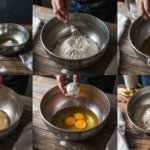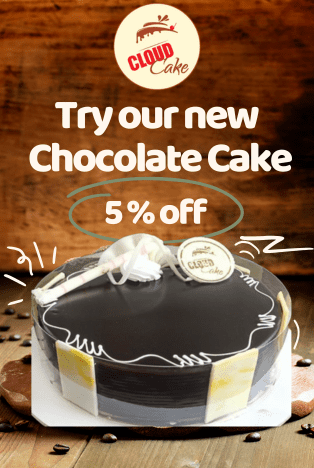The birthday cake is a beloved tradition that has evolved over centuries. In ancient times, cakes were simple offerings made for gods, like the honey cakes in ancient Greece. During the Middle Ages, European cultures began celebrating birthdays with sweet, bread-like cakes, and by the 17th century, layered cakes with frosting emerged. The tradition of candles was introduced in Germany.
“A party without cake is just a meeting.” — Julia Child
“You can’t be sad when you’re holding a cupcake.” (Cloud Cake & Foods)
Few things in life capture the essence of celebration quite like a birthday cake. It is more than flour, sugar, and butter — it is a cultural symbol of joy, a ritual steeped in history, and a sweet expression of love, remembrance, and hope for the year ahead. But how did the birthday cake become such a universal tradition?
From Ancient Ritual to Modern Celebration (Cloud Cake & Foods)
The origins of the birthday cake trace back thousands of years. In ancient Greece, people baked round honey cakes as offerings to Artemis, the goddess of the moon. The round shape represented the moon, and candles were lit to mimic its glow — perhaps the earliest connection between cake, candles, and celebration.
The Romans followed with cakes made of wheat flour, nuts, leavened with yeast and sweetened with honey, used to celebrate significant birthdays and weddings. However, these were not the sugary confections we know today. The idea of reserving a special cake for birthdays evolved much later.
In 18th-century Germany, the tradition of Kinderfest — a birthday celebration for children — popularized the use of sweetened cakes topped with candles, one for each year of age. These cakes were meant not only to mark the passage of time but to symbolize the child’s growing light and life.
“You can’t be sad when you’re holding a cupcake.”
Candles, Wishes, and the Magic of Cake
The act of placing candles on a cake and making a wish is now an almost sacred moment during a birthday. Though its origins are debated, many believe it stems from ancient beliefs that smoke carried prayers and wishes to the heavens. The birthday wish is a quiet hope, a personal moment of reflection — one that’s beautifully wrapped in frosting and flame.
Over the centuries, the birthday cake has evolved in both form and meaning. From elaborately tiered masterpieces to minimalist designs, from traditional flavors to daring fusions — the cake is an edible canvas reflecting both personal taste and cultural identity.
“Cake is happiness! If you know the way of the cake, you know the way of happiness!” — C. JoyBell C.
A Slice of Global Culture (Cloud Cake & Foods)
While the Western world has long celebrated birthdays with cake, different cultures have brought their own flavors and traditions to the table. In China, birthday longevity noodles often take center stage instead of cake, symbolizing long life. In Mexico, the piñata plays a bigger role, though cake is often still enjoyed. Across the globe, though ingredients and customs may differ, the spirit of celebration remains constant — and sweet.
“All you need is love. But a little chocolate cake now and then doesn’t hurt.” — Charles M. Schulz
Conclusion: A Tradition that Grows Sweeter with Time (Cloud Cake & Foods)
The birthday cake is more than a dessert — it’s a tradition that has traveled through time, across continents and cultures. It reminds us to pause, to gather, to celebrate life and the people we love. Every slice carries memories of laughter, togetherness, and the simple joy of being remembered.
So the next time you’re about to blow out those candles, take a moment to appreciate the centuries of sweetness behind that cake — and maybe even make a wish worth waiting for.




